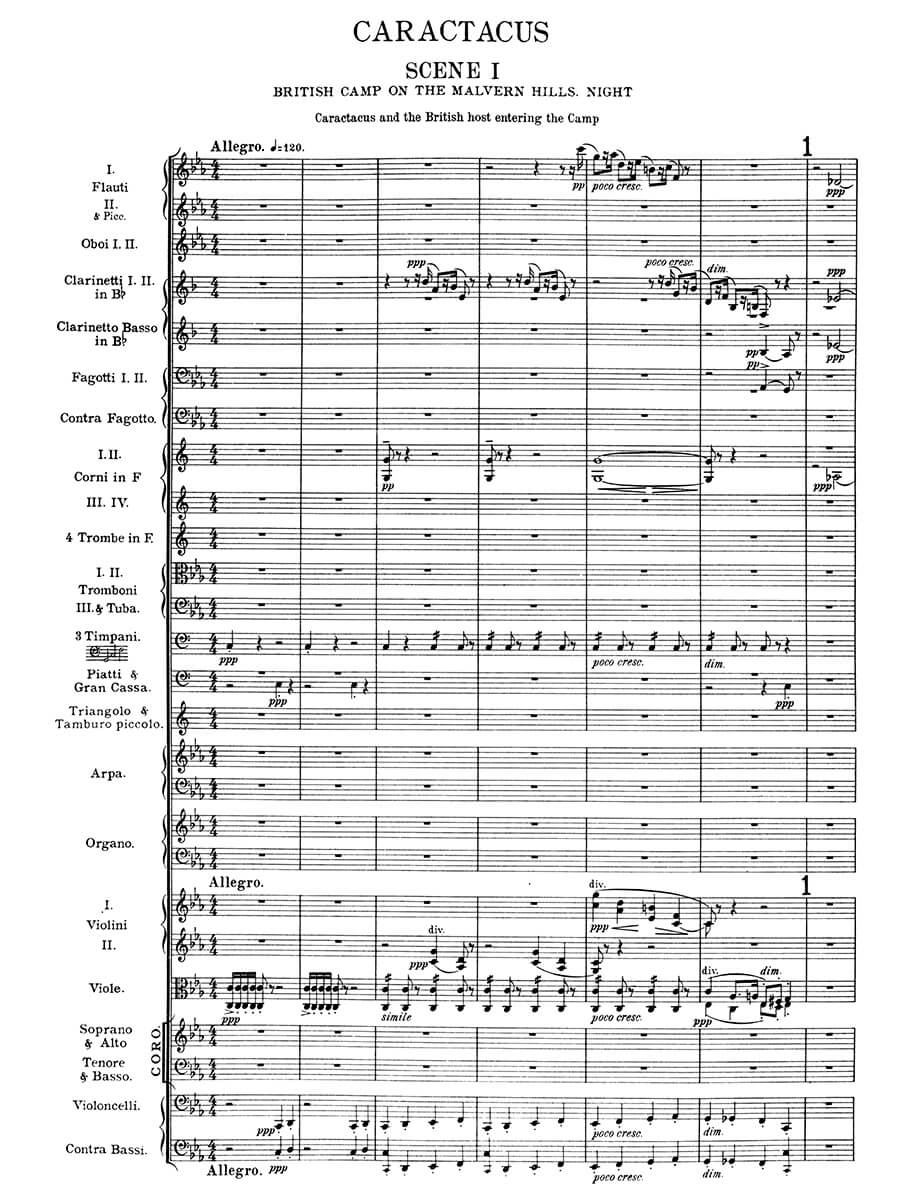Caractacus Op. 35, cantata
Elgar, Edward
65,00 €
Preface
Elgar, Edward – Caractacus Op. 35, cantata
(b. Lower Broadheath, Worcester, 2 June 1857 – d. Worcester, 23 February 1934)A cantata
Preface
By 1897 Edward Elgar had established a reputation as a reliable composer of choral works. The Black Knight, Scenes from the Saga of King Olaf and The Light of Life had made reasonable impressions, and The Banner of St. George, for Queen Victoria’s Diamond Jubilee, was proving particularly popular among the many choral societies that existed across Britain. Elgar still had to succeed in London, but that must surely follow.
He received a commission for a large work for the 1898 Leeds Festival, and Elgar returned to a recent conversation he had with his mother, who at the time was staying with friends in the foothills of the Malvern Hills, in easy sight of the iron-age settlement on the Herefordshire Beacon. “Oh! Ed.”, his mother said, “Look at the lovely old hill – can’t we write some tale about it? I quite long to have something worked up about it…” Elgar suggested his mother do it, which received the reply, “No I can’t. My day is gone by, if ever I could.” And as she later recalled, “…in less than a month he told me that ‘Caractacus’ was all cut and dried, and he had begun work on it.”
Caractacus was an ancient Briton, a Celtic chieftan mentioned by Tacitus and Cassius Dio, who fought the Romans between 43-50 CE, was captured and paraded with his people as prisoners through Rome. Set free by Caesar Claudius, he and his family ended their days in Rome. Victorian tradition told that his final battle occurred on the Herefordshire Beacon. Out of this, Elgar’s librettist, Harry Acworth, fashioned a tale of a struggle against overwhelming odds, within which are a tender love story between two young warriors, some very beautiful ‘nature’ music depicting woodlands, an impassioned (and very fine) lament by Caractacus in 7/4 for his fallen warriors, a great Triumphal March as the captives are paraded through Rome, and – perhaps the most outrageous piece of jingoism as all sing praises to the future British Empire! This embarrassing ending prevented regular performances for many years, until the whole work was recorded in 1977 and people began to realise that Caractacus is a beautiful semi-operatic work that is worth reviving. …
read more / weiterlesen … > HERE
Score Data
| Score Number | 4921 |
|---|---|
| Special Edition | The Phillip Brookes Collection |
| Genre | Choir/Voice & Orchestra |
| Pages | 312 |
| Size | 225 x 320 mm |
| Printing | Reprint |
